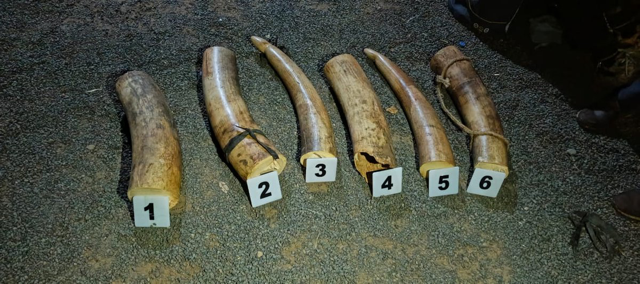Two foreign nationals were arrested in Mombasa after they were found in possession of 27 pieces of elephant tusks weighing over 60 kilogrammes and valued at Sh12 million. The suspects were intercepted in the Miritini area following an intelligence-led operation targeting illegal wildlife trade.
Authorities say the two had entered the area in search of potential buyers for the ivory, which is classified under Kenya’s laws as trophies from endangered species. While the origin of the tusks remains unclear, investigations are ongoing to determine their source and potential links to wider poaching networks.
The suspects were arraigned in court and charged with dealing in wildlife trophies without the necessary permits, contrary to the Wildlife Conservation and Management Act of 2013. They also faced an additional charge of possessing trophies from endangered species without authorization.
In court, the prosecution requested stringent bond terms, citing the seriousness of the offense and the risk of the accused absconding. Each was granted a bond of Sh4 million with one surety, and required to surrender their passports and provide two Kenyan contact persons as part of the bail conditions.
The case will be mentioned later this month as Kenya continues to intensify its efforts against the illegal ivory trade, which remains one of the major threats to the survival of African elephants. Despite a global ban on ivory trade, black market demand particularly in Asia continues to drive poaching in Africa.
In response to the ongoing crisis, authorities have rolled out high-tech solutions including drones and surveillance systems to monitor wildlife movements and detect poachers in protected areas. Interagency collaboration and community engagement are also being enhanced to root out wildlife crime at all levels.
Kenya’s aggressive stance on wildlife protection has gained international recognition, but officials warn that persistent demand and international smuggling networks remain a formidable challenge. The latest arrests underscore the ongoing threat posed by wildlife traffickers and the importance of sustained vigilance in protecting endangered species from extinction.

